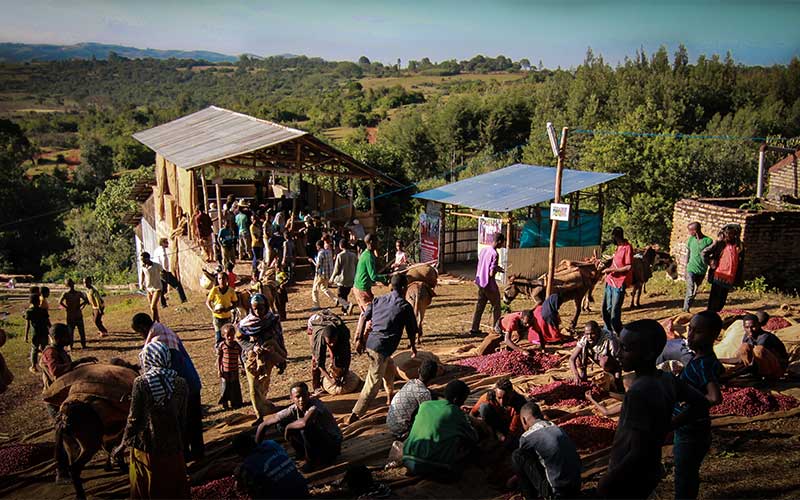An innovative pilot project led by Self Help Africa in Ethiopia is testing blockchain technology to help farmers increase their profits, while creating jobs and providing transparency to the coffee value chain – from the farm to the coffee cup. A “digital wallet” system allows farmers to be paid on their mobile phone, providing more security and a fairer price.
While Ethiopia’s coffee is known for its superior quality, what’s less known is that it is also responsible for 5% of the country’s gross national product, and more than 60% of its foreign exchange earnings. The coffee beans are produced by 2 million smallholder farmers across the country, but the vast majority of these farmers still live on less than $2 a day.
Ethiopia currently earns $800m a year from its coffee harvest, most of which is exported overseas as raw green bean. If Ethiopia began to roast, bag and brand its own coffee and sell a finished product, the country could triple its revenue from the precious bean.
Self Help Africa and partners including Jimma University have joined forces to try to make this a reality – to allow coffee bean farmers to increase their profits and provide more transparency in the value chain.
As part of the project, lead farmer groups near Limu, Oromia, are being trained to disseminate best agricultural practices to close to 850 farmers – with a view of reaching up to 3,000 farmers by 2020.
Self Help Africa and partners also supporting the development of a farmer-owned washing station in order to wash, roast and bag coffee beans, allowing farmers to add value to their produce.

